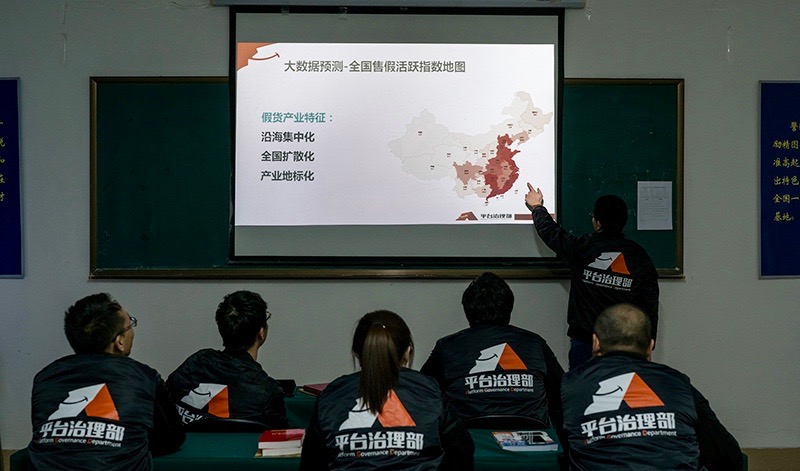


Alibaba Group said Saturday an article about its intellectual property protection in The New York Times lacked crucial information and details provided by the company.
Prior to publication, the group had an extensive dialogue with the reporter and said it was unfortunate much of the relevant information and context the group shared about its IP protection system didn’t appear in the story.
Specifically, Alibaba said the group’s IP protection system works and is used successfully by many rights holders every day. Some 100,000 brands do business on its platforms and are successfully cooperating with Alibaba to remove listings of counterfeit products. And in the 12 months ended Aug. 31, 2016, Alibaba removed 380 million fake-product listings and shut down 180,000 Taobao stores as a result of repeated IP infringements.
Just this past week, two U.S. brands using Alibaba’s e-commerce platforms expressed their satisfaction with IP protection standards. T.J. Scimone, the CEO of Slice.com, detailed his successful use of the Alibaba.com reporting system since 2013 to get listings of fake products taken down. And Jewelry.com described anti-counterfeit protections on Alibaba’s Tmall platform as “solid.”
“There are places where our systems can be improved to make them more-effective, efficient and user-friendly, and we are working hard every day to make these improvements a reality,” an Alibaba spokesman said.
Counterfeiting is a global issue that can only be stamped out with rights-holders working in cooperation with Alibaba. Nearly 10 million new listings go up on Alibaba’s platforms each day, meaning rights-holders, who know their IP best, help the group identify and verify infringing listings.
“We appreciate the challenges faced by rights holders and want to cooperate with them in this fight. This is why we created the IPP platform and are committed to constantly improving its ease of use,” the Alibaba spokesman said. “The closer a rights holder works with us, submitting their notice and takedown requests through our IPP platform, the better we can fight this war.”
Alibaba stressed that its own business and reputation take a knock from knock-offs and that no company has done more to help small and medium-sized enterprises.
Alibaba said active use of its IP platform “helps improve our algorithms and speeds the detection process of IP infringements.”
Regarding the three cases mentioned in the Times article, Alibaba noted it is eager to assist the rights holders, but “if a rights holder chooses not to file notices using the system we have created to help them, it is very difficult for us to be successful in protecting their IP.”
In its fight against fakes, Alibaba has relied heavily on creating a “technology-driven, proactive monitoring and takedown system that removes obviously infringing listings without being notified by a rights holder.” It has used big data to locate not just fake product listings, but also to track down their source and work with law-enforcement to shut down the factories producing fake goods.
Still, the group said it “goes well beyond the legal requirement to provide a notice and takedown system for rights holders.” It added that for every takedown request from a right’s holder, its systems proactively remove 16 listings.
And earlier this year, the Chinese e-commerce giant further stepped up its IP-protection efforts, suing suspected purveyors of counterfeit goods and publicly urging authorities to stiffen laws, enforcement and penalties to deter offenders from repeating their IP thefts.





